
Zedoaria Oil
Zedoaria Essential Oil is one of the most widely used ingredients in the perfumery and flavor industry. This oil has, since long, been a part of the folk medicine. Golden yellow viscous liquid having a warm-spicy, woody & camphoraceous cineolic odor. Benefits the digestive systems and used as a gastrointestinal stimulant in flatulent colic. It also prevents stress ulceration. It is used as a condiment, as a flavoring for liqueurs and bitters, in perfumery, and medicinally as a carminative and stimulant Though the Zedoary (Curcuma Zedoaria) is native to India and Indonesia, it is also found in the flat southern terrain forests of Nepal. It was introduced to Europe by Arabs around the sixth century, but its use as a spice in the West today is extremely rare. Zedoary is a rhizome, also known as Kachur in Nepali grows in tropical and subtropical wet forest of Nepal. The fragrant plant bears yellow flowers with red and green bracts and the underground stem section is large and tuberous with numerous branches. The leaf shoots of the zedoary are long and can reach 1 meter (3 feet) in height. Traditionally, Kachur is used for treating flatulent colic and indigestion, though not as popular as ginger for the same purpose and the bitter tincture of zedoary root is used to prevent disease recurrence (as with malaria) and to treat ulcers. Through its bitter properties, zedoary increases the flow of gastric juices relieving dyspepsia and gastrointestinal upsets associated with digestive organ congestion. Kachur is used for treating stomach ailments and general weakness. The root of this plant is considered to be stimulants, aphrodisiacs, and, amazingly, a cure for amnesia. It is a warm, stimulating aromatic, useful in flatulent colic and debility of the digestive organs. It is nutritive, appetizer, digestive and carminative agent. It is known to help in anorexia, cardiac disorders and dyspepsia. It is used as a condiment, as a flavoring for liqueurs and bitters, in perfumery, and medicinally as a carminative and stimulant. Zedoary is classified in the division Magnoliophyta, class Liliopsida, and order Zingiberales, family Zingiberaceae. Kachur oil is obtained from the rhizomes of Curcuma Zedoaria Roscoe through steam distillation. In fragrance and flavor industry. Improves blood circulation, ant contusion, and improves menstrual flow. It helps in abdominal cramps, amenorrhea-abdominal pain and rheumatic pain. It also helps in pain and swelling associated with sprains. Zedoary oil (Zedoary Root essential oil, Kachur oil) is obtained from the rhizome of Curcuma Zedoaria Roscoe (per GRIN a synonym for Curcuma picta), a perennial monocot in the Family Zingiberaceae. This oil is known to be an excellent supplement for the digestive systems with a large scale utility for the gastrointestinal stimulant in flatulent colic. It also assists in preventing stress ulceration. The herbal extract has medicinal use in traditional eastern medicine where it has been used as an aid to digestion, a relief for colic, for blood purification, and as an antivenom for the Indian cobra. It has also been used in western medicine to treat coronary heart disease, liver cancer, anemia and other indications.
Botanical Name : Curcuma Zedoaria
Extraction Method : Steam distillation
...more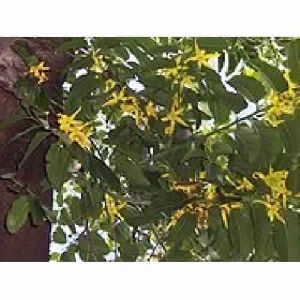
Ylang Ylang Oil
Ylang-Ylang (Cananga odorata var. genuina) is a tall tropical tree that grows up to 65 feet high with large delicate flowers that come in shades of yellow, mauve, or pink. The yellow flowers are preferred for the extraction of the essential oil, which is steam distilled from the freshly picked flowers in fractionated rounds to separate the topmost, delicate, floral notes (about 40% of the yield) from the more earthy-bourbon type notes of the successive fractionations. It is indigenous to tropical Asia, but the most prized oil comes from Madagascar and the Comoro Islands. The oil is characterized as intensely sweet, soft, floral-balsamic, with a slightly spicy scent and a creamy-rich top note.
...more
Wintergreen Oil
Oil of Wintergreen is extracted from the leaves of a small evergreen herb that grows up to 15 cm. In late spring the plant forms small white flowers. In summer red cherry shaped berries grow and last until the following spring. The crushed leaves have a lovely medicinal smell. Traditionally Wintergreen was chewed by the natives of the Americas in order to increase lung capacity and assist in healing respiratory conditions. Early settlers chewed on Wintergreen to help prevent tooth decay. The dried leaf and stem are current in the British Herbal Pharmacopoeia as a specific for rheumatoid arthritis. It is often blended to a 10% concentration in the carrier oil of your choice, and used as an effective pain-relieving massage oil.
...more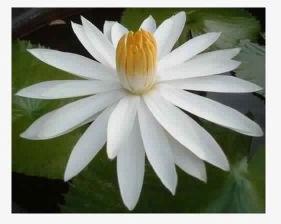
White Lotus Absolute Oil
White Lotus Absolute is an authentic oil from Tamil Nadu, India, that is distilled from wild flowers. Working best with floral oils, it has in it the ability to calm & sooth where users often feel more open to forgiveness & kindness. The lotus flower has been used as a medicinal herb for generations in Asia. Lotus leaf juices alone are used for diarrhea and sunstroke when mixed with licorice. The flower is used for abdominal cramps, bloody discharges, bleeding gastric ulcers, excessive menstruation and post-partum hemorrhage. The flower stamens of the lotus are used in urinary frequency, premature ejaculation, hemolysis (the breakdown of red blood cells), epistasis (gene interaction) and uterine bleeding. The fruit is used for agitation and fever. Lotus seed has been shown to lower cholesterol levels and to relax the smooth muscle of the uterus. It has been used for poor digestion, enteritis, chronic diarrhea, insomnia, and palpitations. Currently, there is not enough scientific evidence to recommend the use of lotus for any indication. Side Effects and Warnings:Few adverse effects in humans have been reported for lotus. Lotus may cause flatulence (gas), constipation and other gastrointestinal irritation. Avoid in patients with constipation and stomach distension (swelling). Theoretically, lotus may lower blood pressure and have antiarrhythmic (treats abnormal heart beat) and contraceptive activity. Lotus may also increase the risk of bleeding. Caution is advised in patients with bleeding disorders or taking agents that may increase the risk of bleeding. Dosing adjustments may be necessary. Pregnancy and BreastfeedingLotus is not recommended in pregnant or breastfeeding women due to a lack of available scientific evidence. Although not well studied in humans, Nelumbo nucifera seed may have antifertility activity. Traditional Medicinal Uses:The leaves are used to treat sunstroke, diarrhoea, dysentery, fever, dizziness and vomiting of blood. The plant is used as an antidote for mushroom poisoning and for smallpox. In Ayurveda, the plant is used to treat cholera, diarrhoea, worm infestation, vomiting, exhaustion and intermittent fever. The fruits are used in decoction for agitation, fever, heart and haematemesis while the stamens are used to “purify the heart, permeate the kidneys, strengthen virility, to blacken the hair, for haemoptysis and spermatorrhoea”. They are also used to treat premature ejaculation, as astringent for bleeding, excessive bleeding from the uterus, abdominal cramps, bloody discharges, metrorrhagia, non-expulsion of the amniotic sac, and as cooling agent during cholera. The seeds are believed to promote virility, for leucorrhoea and gonorrhoea. Powdered beans are used in treating digestive disorders, particularly diarrhoea. They are also used as a tonic, for enteritis, insomnia, metrorrhagia, neurasthenia, nightmare, spermatorrhoea, splenitis and seminal emissions. The roots are for the treatment of diarrhoea, dysentery, dyspepsia, ringworm and other skin ailments and as a tonic as well. Pharmacological Activities:Antianxiety, Antiarrhythmic, Antibacterial, Anticonvulsant, Antidiarrhoeal, Anti-inflammatory, Hepatoprotective, Antioxidant, Antiplatelet, Antiproliferative, Antipyretic, Antiviral, Hypoglycaemic, Hypolipidaemic, Immunomodulatory and Insecticidal.
...more
WATERMELON OIL
The light texture, moisturizing capabilities and stable shelf life of Watermelon Seed Oil lends it to be a highly suitable addition to natural baby oil formulations. Unlike mineral oil that is a common ingredient in commercial baby oils, Watermelon Oil does not clog pores or prevent the body from naturally eliminating toxins through the skin. The rich composition of essential fatty acids contained in Watermelon Seed Oil helps to restore elasticity to the skin. It, therefore, is also a wonderful addition to skin care formulations for all skin types, including dry, oily, acne-prone or maturing skin. Watermelon Seed Oil is also a perfect choice for inclusion in hair care formulations as it is non-greasy yet highly moisturizing.
...more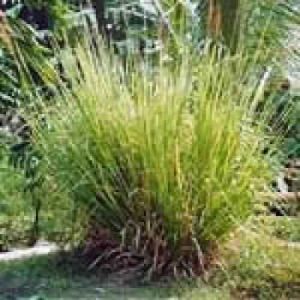
Vetiver Oil
Vetiver oil is from an aromatic grass with a grounding, earthy-smokey scent often employed as a fixative in oriental-type perfumes and as a natural fragrance ingredient in soaps. It is actually grown in India to protect against the erosion of soil during the tropical season where it rains heavily, but the rootlets have been used since antiquity in the East for their fragrance. In aromatherapy the oil is considered to be deeply relaxing and often used in baths and massage for issues relating to nervous tension, debility, insomnia, and depression. Its skin care applications extend to acne treatment from oily skin, and accelerating the healing of cuts and wounds.
...more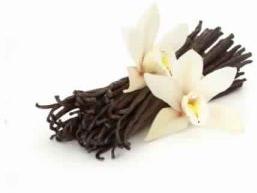
Vanilla Oil
Vanilla oil makes a very appealing product in itself to many who get a feeling of comfort and relaxation in the vanilla scent. They use vanilla oil to efficiently keep anxieties and stress away from themselves. Vanilla oil though is non-toxic oil; it is not advisable to consume it raw. The most common uses of vanilla oil include its usage as a flavoring agent in eatables and sometimes in medicines as well. Vanilla scent is known to sexually stimulate some and hence it is also used for making scrubs, perfumes and scents with a vanilla tinge. Vanilla oil is known to stimulate menstruation. Vanilla oil is made out of a process which is known as enfleurage. Through this process the essence of the brown vanilla bean is trapped by mixing it with fats. Brown vanilla bean comes out of green fruit of vanilla plant after it is fermented and dried. The fats mixed with the vanilla scent are soaked in ethyl alcohol which is later distilled to give the vanilla oil as a leftover.
...more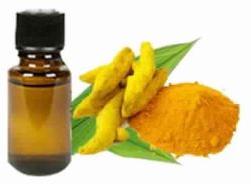
Turmeric Oil
Turmeric is mostly known as a food color in various food industries. It offers a cheaper way to yellow coloring. According to a report, India entirely cultivates the crop of turmeric as well as consumes 80% of it. Turmeric oil is used for numerous therapeutic purposes. Traditionally, turmeric is used to add flavor to various dishes. It is usually used in powder form. There may be similarity between turmeric roots and ginger roots but turmeric roots become shiny yellow after being stripped. Uses of Turmeric:Alzheimer’s DiseaseInflammation inside of the brain has been suspected to be one of the contributing factors in the development of Alzheimer’s disease. Studies have shown that Turmeric has anti-inflammatory and anti-oxidant activity. Therefore, regular daily consumption of Turmeric capsules may be an effective way to prevent the onset of Alzheimer’s. Arthritis:Due to its anti-inflammatory and pain-relieving properties, it is not surprising that Turmeric is now being used as an effective natural remedy for Arthritis pain. Therefore, taking 500mg to 1000mg Turmeric capsules three times per day may provide significant relief from osteoarthritis pain. Asthma:Since turmeric is an anti-inflammatory, it can help reduce the inflammation associated with asthma. Add 1 teaspoon of turmeric powder to a glass of warm milk, and drink this mixture as an effective asthma home remedy. Cancer:Several recent studies have found that Turmeric can induce apoptosis, a process that triggers the self-destruction and elimination of cancerous cells. Further research is still required before the full effects of Turmeric on cancer: cells can be determined. However, existing studies suggest that daily Turmeric powder or supplements combined with a balanced, nutritious diet may help prevent or even destroy cancer cells. Colds and Flu:Turmeric’s anti-bacterial, anti-viral, and anti-fungal agents can help our body fight against colds, cough and flu. Therefore, when symptoms of these infections are present, simply mix one teaspoon of Turmeric powder into a glass of warm milk once per day. Also drink plenty of water throughout the day. Diabetes:Recent studies have shown that the antioxidant agents in Turmeric help reduce insulin resistance, which may prevent the onset of Type-2 Diabetes. Therefore, a simple preventive remedy is to take one teaspoon of turmeric powder twice a day with meals. Curcumin extracts or capsules can also be used as an alternative to the powder. Inflammation: Turmeric’s key ingredient Curcumin is known for its anti-bacterial and anti-inflammatory properties. Therefore, Turmeric powder can help in healing cuts, wounds, and other skin infections including boils. Heat one cup of Flax Seed Oil in a small saucepan on the stove. Thinly slice a small onion and add it to the hot oil. Fry the onions until they are dark brown and crunchy. Remove the brown onions and mix 2 tablespoons of Turmeric powder into the oil. Turn off the stove and let the oil cool down to a temperature that is comfortable to touch. Using a cotton swab, apply a small amount of the oil onto the injured or infected skin area. Apply this three times per day until the wound or infection is cured. Save the remaining oil into an airtight container for future use. Weight Loss:Curcumin in Turmeric powder has been found to help increase the flow of bile, an important component in the breakdown of dietary fat. Therefore, taking one teaspoon of Turmeric powder with every meal may be an effective weight loss aid when combined with a healthy diet and exercise program. Side Effects of Turmeric:Moderate use of Turmeric powder as part of regular diet is fairly safe, and recent studies have found that a dosage of 500mg capsules of Turmeric three times per day is safe. However, prolonged consumption of high doses of Turmeric extract may cause stomach or liver distress, as well as dehydration and constipation. Therefore, it should be avoided by people with gallstones or bile obstructions. If you are currently taking blood thinners (including Aspirin), you should consult your doctor before taking Turmeric since it is an anti-platelet (prevents blood clots).
...more
Tuberose Absolute Oil
Tuberose is one of the most fragrant of all flowers. The absolute produced from the blossoms has a very complex chemical composition (as is true of other absolutes) and contains alcohols, aromatic esters, traces of indole, eugenol and tuberone (a ketone). Perhaps this is one of the reasons why complex and highly concentrated aromatic oils do not smell as expected, or may seem to have an off-putting aroma, when smelled directly from the container. It is so crucial to evaluate the aroma of aromatic oils from a scent strip where the oil is exposed to air, allowing the aromatic molecules to evaporate, become air borne, and be detected by the nose; then the true nature of the oil – with all its subtle tones and nuances – can be more accurately discerned. Tuberose Absolute has a well-established reputation for use in fine fragrances and perfumery. Our Tuberose Absolute – Fine has a warm, very sweet, extremely rich, intoxicating floral aroma with a long, soft, sweetly floral drydown. This delightful oil benefits intuition, creativity, sensuality, peace of mind, and positive resolve. But for perfumers, our Tuberose Absolute – Fine is a specialty oil not to be missed. We highly recommend this one!
...more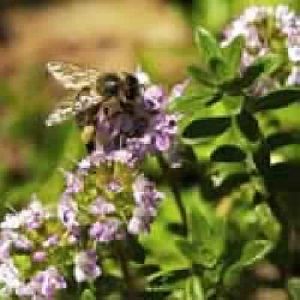
Thyme Oil
Thyme essential oil is extracted, by steam distillation, from the fresh or dried leaves and flowering tops of the plant. This is the Linalool chemotype, the most gentle variety of Thyme oils. The oil is mainly located in small glands on the leaves and contains thymol, paracymene & linalool. The main component of Thyme oil is Thymol, a powerful antiseptic which considered to be quite toxic if used improperly. It is common knowledge among aromatherapists that the essential oil of Thyme is one of the most potently antiseptic essential oils known. Thymol has been extensively documented for its antibacterial, antiviral, and anti-fungal action. According to Jean Valnet, M.D., Thyme oil kills the anthrax bacillus, the typhoid bacillus, meningococcus, and the agent responsible for tuberculosis and is active against salmonella and staphylococcus bacteria. In addition, this component has been studied for its effects on gingivitis and plaque-caused organisms in the mouth (it is used in Listerine for its antiseptic actions).
...more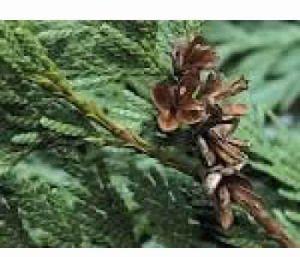
THUJA WOOD OIL
The health benefits of Thuja Essential Oil can be attributed to its properties like anti rheumatic, astringent, diuretic, emenagogue, expectorant, insect repellent, rubefacient, stimulant, tonic and vermifuge. Thuja is well known and very popular as a decorative plant. This does not mean that it is anyway less popular in the world of medicines. Thuja has a significant place in herbal and Homeopathic system of medicines. Even there is a medicine called Thuja in Homeopathy. Thuja can easily be seen in parks and domestic gardens and in most places where people try to decorate their surroundings with decorative plants. The scientific name of Thuja is Thuja Occidentalis and it is basically a coniferous tree, normally not very tall. Crushed Thuja leaves emit a pleasant smell which is somewhat like that of crushed Eucalyptus leaves, but more sweet.
...more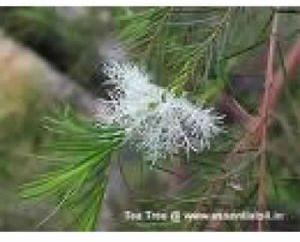
Tea Tree Oil
Tea Tree essential oil is most effective for anything related to fungal infections. Restore your fingernails and toenails to their natural beauty when used directly on embedded nail fungus, or to quickly relieve the cracking and discomfort of athlete’s foot or jock itch. Also useful for disinfecting minor cuts and scrapes. Uses of Tea Tree Oil: Skin Infections. Acne Treatment- A common use of Tea Tree Oil is as a natural Acne treatment. Boils and Carbuncles: Toenail Fungus Tea Tree Oil help treat toenail fungus infections. Simply apply 1 to 2 drops of the oil directly onto the infected toenails and rub it above and under the tip of the nail. Repeat this once per day. Warts: Many people have also found that Tea Tree Oil can be used as a very effective treatment for Genital Warts. Bad Breath, Inflamed Gums, and PlaqueTea Tree Oil, when used as a mouth wash, acts as a natural cure for bad breath, oral candidiasis, gingivitis, plaque, and inflamed gums. It also kills mouth bacteria prior to dental surgery and also reduces mouth irritation that is often caused by dental procedures. Add 3 drops of Tea Tree Oil to a cup of warm water. Use the solution as a mouthwash two to three times daily. Always spit out the Tea Tree Oil mouthwash. Do not swallow it. You may also add 1 drop of Tea Tree Oil to toothpaste when brushing teeth. Sore Throat and Congestion:Tea Tree Oil can be combined with a simple steam inhalation technique to naturally cure congestion, sore throat, chest infections, and clearing up mucus.. Fill a large cooking pot or bowl with water. Bring the water to a boil. Remove the pot from the stove and add 2 to 3 drops of Tea Tree Oil into it. Cover your head with a towel and lean over the top of the bowl so that the long ends of the towel are hanging down at the two sides of the bowl. Inhale the vapors for about 5-10 minutes. Repeat the process each night before going to bed until symptoms are cured completely. If symptoms persist for more than 5 days it is best to consult your doctor. Canker Sores and Laryngitis:Diluted in water, Tea Tree Oil is an effective treatment for canker sores and laryngitis: Add 3-4 drops of Tea Tree Oil to one cup of warm water. Gargle this solution twice daily. Do not swallow. Dandruff and Lice:Studies have shown that shampoos with 5% of Tea Tree Oil can cure dandruff and help get rid of head lice.Yeast Infections Tea Tree Oil can also be used as an effective Home Remedy for Yeast Infection Treatment. Side Effects of Tea Tree Oil:Pregnant and breast-feeding women should avoid the use of Tea Tree Oil.
...more
Tea Rose Absolute Oil
A rose is a perennial flower shrub or vine of the genus Rosa, within the family Rosaceae that contains over 100 species and comes in a variety of colours. The species form a group of erect shrubs, and climbing or trailing plants, with stems that are often armed with sharp prickles. Most are native to Asia, with smaller numbers of species native to Europe, North America, and northwest Africa. Natives, cultivars and hybrids are all widely grown for their beauty and fragrance.The leaves are alternate and pinnately compound, with sharply toothed oval-shaped leaflets. The plant’s fleshy edible fruit, which ripens in the late summer through autumn, is called a rose hip. Rose plants range in size from compact, miniature roses, to climbers that can reach 7 meters in height. Species from different parts of the world easily hybridize, which has given rise to the many types of garden roses.
...more
Tagetes Oil
Tagetes essential oil is extracted from Tagetes minuta from the Composites family and also known as marigold, Mexican marigold and tagetette and often confused with calendula oil, which is Calendula officinalis and the “true marigold”. A with deeply divided deep-green feathery leaves and numerous yellowish-orange carnation-like flowers.The leaves and flowers are a good insect repellent and are often seen hanging from native huts to deter swarms of flies and mosquitoes. The health benefits of Tagetes Essential Oil can be attributed to its properties like anti biotic, anti microbial, anti parasitic, anti septic, anti spasmodic, disinfectant, insecticide and sedative. Tagetes is also known by few other names such as Khaki Bush as Mexican Marie Gold. This herb is believed to be a native of Africa from where it spread to America, Europe and Australia. Its scientific name is Tagetes Minuta and it is very much valued as an insect repellant, anti parasitic and anti septic in the places given above. Anti Biotic: Biotic means anything that concerns life. Biotic growth means growth of living cells or higher forms of life. In the context of human body and pathology, biotic growth means growth of bacteria or fungi or protozoa or any other form of parasites in the human body. So, obviously, an anti biotic means an agent that counters or inhibits such biotic growth in the body. It has been found very beneficial on open sores, ulcers, rotten wounds and even gangrene. In some places, it is used to clear wounds and eliminate growth of maggots in them. Anti Microbial: As discussed above, the Essential Oil of Tagetes is useful in stopping growth of microbes in the body and thereby protecting it from infections. In cases of infectious diseases caused by bacteria or fungi or protozoa, such as food poisoning, athlete’s foot, cholera, septic, tetanus, typhus, malaria, skin diseases, dermatitis etc., this oil can be employed in wiping out these infections and giving relief from the diseases told above. Anti Parasitic: This oil can help you get rid of the most annoying and harmful of parasites on human body such as mosquitoes, fleas, lice, bed-bugs and others. It keeps them away as well as neutralize their effects such as bites, stings etc. Anti Septic: Again, as most of you are aware by now, septic is another name of infection caused by a bacteria called Staphylococcus Aureus. It is very dangerous and can be fatal. It may start on a simple looking wound and engulf the whole body within a few hours. It readily affects the new born babies. Its symptoms include convulsions, extreme spasm and muscular contractions, swelling with redness, immobility of the limbs and even insanity. This oil is lethal to these bacteria and helps get rid of septic. Anti Spasmodic:Being relaxant in nature, this oil relaxes any type of spasm in the body and gives relief from spasmodic cough, diarrhoea, cramps, convulsionsetc. Disinfectant: The anti microbial, anti parasitic and anti biotic properties of the Essential Oil of Tagetes prove very effective in disinfecting the body or an area. When ingested or applied externally, it cures infections in the body and when used in fumigants, vapourizers, sprays etc. it disinfects the whole space within its reach. This also protects from wind borne diseases like common cold, mumps, measles, pox and others. Insecticide: The Tagetes Essential Oil is lethal to insects and kills them. So, it keeps away parasitic insects such as mosquitoes, fleas, bed bugs, lice etc. as well as common household insects such as cockroaches, ants, white ants or termites and other such. Sedative: The sedative property of this oil is well known and has been in use for long. It sedates inflammations and irritations in the digestive system, nervous system, excretory system and neurotic system and convulsions, afflictions, anxiety, stress, depression, anger, panic and other emotional and psychological hyper reactions. Other Benefits: Apart from the uses discussed above, it is further used to ease phlegm and catarrh depositions, congestion and to treat wounds, burns, athlete’s foot, skin diseases, dermatitis, colitis etc. Few Words of Caution: It may cause sensitization and irritation. Heavier doses or doses of higher concentration may be hard to withstand. It is therefore, should be avoided in pregnancy.
...more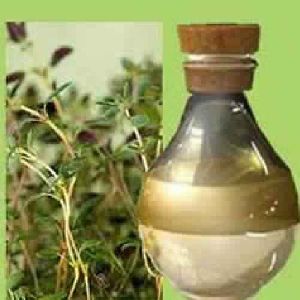
Sugandha Mantri Oil
Sugandh mantri essential oils are known for high purity and have a mesmerizing aroma that makes them widely used in aromatherapy applications. Sugandh Mantri is wildly grown and cultivated in Assam region of India.
...more
Spikenard Oil
Spikenard essential oil has an earthy, strong aroma, similar to patchouli or valerian. Jatamansi Oil has been used for thousands of years to promote a peaceful and calm mind. It possesses a beautiful fragrance and is beneficial in the practice of yoga and meditations. This is a 100% pure essential oil with no other oils added. Jatamansi is also known as spikenard and has been a valued oil since the Biblical times. It is mentioned that Mary Magdalene used this oil to massage the feet of Jesus at the Last Supper. Jatamansi possesses tremendous ability to calm and sooth frayed nerves. It is especially grounding for Vata disorders. It can stimulate and promote a healthy male hormonal system and help restore a sense of control and power. It is also used to maintain the healthy youthfulness to maturing skin.
...more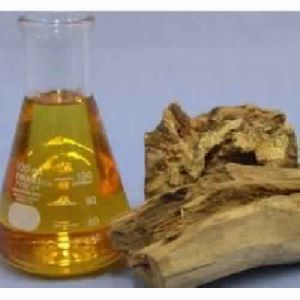
Sandalwood Oil
Botanical Name: Santalum album Origin: Historically, India is known to be native to Sandalwood trees. Form: The Sandalwood oil has a medium-thick consistency. Scent: Sandalwood oil is pleasantly rich, sweet, fragrant, woody, floral yet delicate to sniff at. Shade and Appearance: Clear with a Yellowish tinge. Chemical constituents: The main chemical components of the Sandalwood oil are Santalol, Santyl- Acetate and Santalene, out of which Santalol accounts for nearly 90% of the total constituent content. Extraction method: Sandalwood oil is extracted from the chipped heartwood by the means of steam distillation and yields 4 – 6.5 %, which well justifies its premium costing. Blends well with: The Sandalwood oil blends particularly well with Bergamot, Black pepper, Geranium, Lavender, Myrrh, Rose, Vetivert and Ylang-Ylang oils. The ‘Natural Wealth’: The Sandalwood oil comprises of wonderful anti-phlogistic, anti-septic, anti-spasmodic, astringent, carminative, diuretic, emollient, expectorant, sedative and tonic properties. Extraction Method, Steam Distillation are use to extracted to Sandalwood oil. First, After unloading logs in factory worker are separate sweap and mature wood from logs, Then Chipper machine or Chipper man do Eight inches of mature Sandalwood, than by the using of Sandi cutter machine piece turn to shape of Powder. Now Distillation ready to begin. The worker filled this powder to a big copper’s cauldron. Then Fireman left steam to cauldron from boiler. After 6-8 Hours we separate “Trepans” from retort. It is nacessary for find to good Santalol. Then after 1 day we separate first reading of Sandalwood oil from retort, this process are continue to 1 week and after every 24 hours we separate Sandalwood oil from water in retort. When distillation are finished then we make Sandalwood oil 100% free from water with boiling. Now Pure Sandalwood oil are ready to use for any cosmetics or other industries. Treasure of benefits and uses! Therapeutic: The Sandalwood oil hydrates and moisturizes the skin and creates a calming and harmonizing effect on the mind, while reducing tensions and confusions. It is always demanded as an incense as for its calming effect during meditation. The various sects of YOGA, especially the Swahra yoga recommends it for the union of the senses and the Tantric yoga for the awakening of sexual energy. Medicinal: Medicinally, Sandalwood oil has wonderful qualities to reduce and eliminate both chest and urinary tract infections. It is very useful for any chest complaints as it has a pronounced effect on the mucus membranes of both the pulmonary as well as genito-urinary tract – making it very effective for complaints of the urinary tract as well. Chronic chest infections, sore throats and dry coughs as well as bronchitis and asthma can benefit greatly from this oil, as well as cystitis and bladder infections, also helpful with sexual problems such as frigidity and impotence. Beauty and Perfumery: On the skin, sandalwood oil relieves itching and inflammation of the skin, and is most effective in relieving dehydrated skin – making it great a anti-ageing skincare source. Furthermore, it has a great toning effect and is also used with great results in oily skin conditions and to prevent the skin from forming ugly scars and for fighting dry eczema.
...more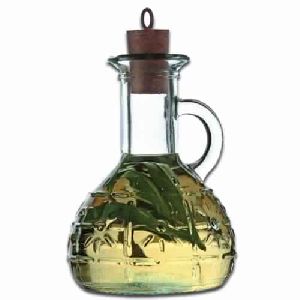
Sage Oil
Sage oil is the essential oil, which is made from the culinary herb sage, Salvia officinalis. In addition to its valuable flavoring distinctiveness, it has been suggested that sage oil can contain as much as 50% thujone by weight. The exact amounts vary from time in the season and part of the plant tested. Thujone was traditionally, and incorrectly, regarded as the active ingredient in absinthe distinguishing it from less contentious alcoholic beverages. The FDA contradicts itself, as absinthe that contains thujone is banned however Sage oil is allowed and known as safe even though it too contains thujone. It has been suggested that sage oil boosts short-term memory performance in many persons using it as a dietary supplement. This essential oil is extracted by steam distillation ranging from 1.2 to 2.5% of dry leaves. The most important constituents of sage oil include -thujone, camphor, linalool, 1,8-cineole, cis-ocimene, -thujone, sabinyl acetate and several other compounds. The quality of the essential oil of sage generally differs by geographic region, but this may be attributable to the use of different sage species or types. The most common adulterant to sage oils is thujone, from the leaves of Juniperus virginiana L, red cedar.
...more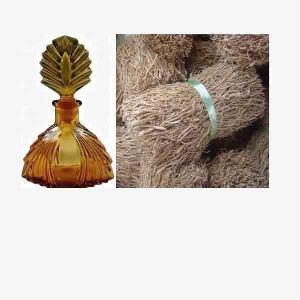
Ruh Khus
Vetiver is perhaps the premier perfume fixative, said to be a component in 90% of all perfumes. Ruh khus comes from Root, whereas the cultivated variety must be propagated by division. The best quality oil comes from roots that are 18 to 24 months old. These roots are freshly unearthed, cleaned, dried, soaked in water and then distilled, the process of which can take up to 24 hours. After the distillate separates into essential oil and hydrosol, the oil is skimmed off and allowed to age several months while it mellows and deepens. Like sandalwood and patchouli, vetiver oil improves with age. Ruh khus oil is non-toxic, non-irritant and non-sensitizing. Use with caution during pregnancy (small amounts, diluted). Do not take wild vetiver essential oil internally. Perfumery Note: Base note Odor: Rich, balsamic, root-like, deep wood-earth Strength of Initial Aroma: Strong Dry-out: Warm, spicy Blends Well With: Ylang-ylang oil, sandalwood oil, clary sage oil, patchouli oil, jatamansi oil, angelica oil and lavender oil
Color : dark green
...more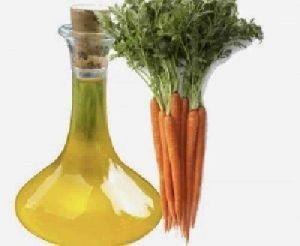
Pure Carrot Seed Oil
The health benefits of Carrot Seed Essential Oil can be attributed to its properties like anti septic, disinfectant, detoxifier, anti oxidant, anti carcinogenic, carminative, depurative, diuretic, emenagogue, stimulant, cytophylactic, tonic, Vermifuge etc. Let us check out its medicinal properties and healthy aspects… Anti Oxidant: This Carrot Seed essential oil can help you retain your youth and look refreshingly young. Anti oxidants in it repair all the damages done to your tissues by the oxidants and stop them from doing further harm. These anti oxidants do not let your skin go wrinkled, your hair white, joints go immovable, your muscles go loose and your eyes lose eyesight. They can protect you from Macular Degeneration, sexual weakness, weak digestion, some forms of cancer and other problems related to aging. Anti Septic, Anti Viral & Disinfectant: It can cure infections, protect from them and has anti septic properties, that is, it can prevent tetanus. Internally taken, it effectively helps cure infections of throat, mouth, colon, stomach, intestines and urinary system. It is miraculously effective in curing sores, gangrene, psoriasis, ulcers, rashes, carbuncles and such problems. It can even cure viral infection of the whole respiratory system, thus benefiting in bronchitis. It is effective in fighting other viral infections such as in case of flu, mumps, cough and cold, measles etc. Detoxifier: Carrot Seed Oil has ability to detoxify the blood, tissues, muscles and internal organs like liver and kidneys. It can neutralize excess bile secreted from liver and can help cure infection of liver in cases of jaundice. It removes accumulation of toxins like uric acid from the blood, tissues, muscles and joints, thereby helping cure edema, arthritis, gout, rheumatism etc. Carcinogenic: Recent studies have shown the Carrot Seed oil is beneficial in curing some forms of cancer too, especially those of mouth, throat, stomach, prostrate, kidneys etc. These anti carcinogenic properties can be attributed partly to its anti oxidant properties, and partly to the other medicinal properties of its components. Carminative: The Carrot Seed oil can keep you glued to the ground. It will just remove the gases from the intestines. You will feel so relaxed and so light that you will think that you can really fly now. Depurative: Carrot Seed oil can purify all the organic systems inside our body, particularly the circulatory, digestive and the excretory systems. It removes toxins like uric acid, urea, insecticides, pesticides and other chemicals which get into our body with our food and water and help restore their health. Diuretic: Carrot Seed oil is diuretic in nature. It increases urination. Each time you urinate, some fat, a lot of toxic substances and microbes causing infections in the urinary system and otherwise, are removed from the body with urine. Then it reduces blood pressure and cleans the kidneys. It is also helpful in clearing renal calculi. Emenagogue: Emenagogue is a property which makes menstruations easy, less painful and regular. This particularly helps when somebody is suffering from irregular and obstructed menses. Stimulant: It stimulates circulation and metabolism. It also stimulates secretion of hormones, enzymes, gastric juices, bile and the peristaltic motion of the intestines, thus keeping all the organic systems active. It also stimulates brain functions and nerves.
...more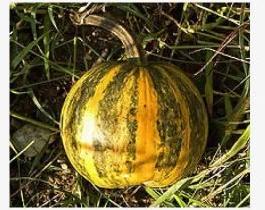
Pumpkin Seed Oil
The seeds of the pumpkin, botanical name Curcurbita pepo, are best known as a healthy fall snack. Nutritionally, the seeds contain essential fatty acids, potassium, phosphorus, magnesium, iron and beta-carotene. They are also a good source of fiber. Preliminary studies from China and Russia have shown the protein in pumpkin seeds, called cucurbitin, to be effective at resolving tapeworm infestations. Two studies from Thailand found that eating pumpkin seeds as a snack can help prevent the most common type of kidney stone by reducing levels of substances that promote stone formation. Pumpkin seed oil, also called Kuerbiskernoel, is extracted from the seeds of the Styrian pumpkin grown in Austria and Slovenia. It is also said to be an effective diuretic, and is sometimes used to relieve urinary tract infections. Two studies found the oil to be beneficial for relief of the symptoms of benign prostatic hyperplasia (BPH) by improving the function of the bladder and urethra. Pumpkin oil has a high tryptophan content that may be useful in the treatment of insomnia. PROSTATE FUNCTION:Pumpkin seed oil has been used in combination with saw palmetto in two double blind human studies to effectively reduce symptoms of Benign Prostatic Hyperplasia. Researchers have suggested that the zinc, free fatty acid, or plant sterol content of pumpkin seeds might account for their benefit in men with BPH. Studies have shown that pumpkin seed extracts can improve the function of the bladder and urethra, this might partially account for BPH symptom relief. ANTI-ARTHRITIC:Studies have shown that pumpkin seed oil is as potent as the drug indomethacin at relieving chronic rheumatoid arthritis. It is likely that this effect is due to the essential fatty acid profile, rich antioxidant content, and the synergistic effects of other minor components. Pumpkin seeds have been shown to have high levels of vitamin E, including all forms of the tocopherol family i.e. alpha, beta, delta, and gamma tocopherol, along with the tocotrienols. ANTI-PARASITIC:Cucurbitin is an amino acid that has shown anti-parasitic activity in vitro. Human studies conducted in China have shown pumpkin seeds to be helpful for people with acute schistosomiasis, a severe parasitic disease occurring primarily in Asia and Africa that is transmitted through snails. CHOLESTEROL LOWERING:Pumpkin seed oil has been concurrently used with cholesterol lowering drugs and would appear to potentiate the overall lipid lowering effects. The positive effects on lowering LDL levels and increasing HDL levels are most likely due to the antioxidant and essential fatty acid content of pumpkin seed oil. Side effects of the cholesterol drug were also reduced when pumpkin seed oil was administered. Similar positive results have been found in concomitant use of pumpkin seed oil with anti-hypertensive medication. The hypotensive action is due to the EFAs and antioxidant capability of PSO. KIDNEY FUNCTION:Pumpkin seeds appear to both reduce levels of substances that promote stone formation in the urine and increase levels of compounds that inhibit stone formation. Some research has demonstrated that PSO could remarkably reduce bladder pressure, increase bladder compliance, and reduce urethral pressure. Dosage One to three teaspoons daily. Best taken with food. Potential applications Rheumatoid arthritis, elevated blood lipids and cholesterol, parasitic infestation, BPH, kidney/bladder disorders. Useful in maintaining skin health. The high tryptophan content of the seeds may make the oil useful in cases of insomnia. A nutritious culinary oil.
...more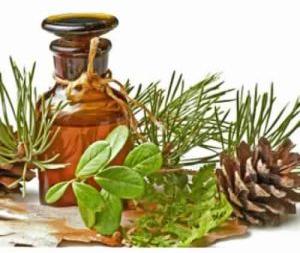
pine needle oil
Our offered variety of Pine Needle Oil is refreshingly woody, earthy and balsamic. Much popular for its different medicinal qualities, it is a natural remedy against all kinds of fatigue and is highly regarded for its cleansing properties. Pine needle essential oil relieves mental, physical and sexual fatigue, while having a cleansing and invigorating effect on an area.The natural essential oil is great for vapor therapy in a sick room as it promotes healing.This essential oil can also be used for cuts and sores, scabies and lice and for excessive perspirationPine needle oil has some warming properties that help with rheumatism, arthritis, gout, muscular aches and pains and it can stimulate circulation.This essential oil helps in cases of bronchitis, asthma, catarrh, coughs, laryngitis, colds and flu. Moreover, it eases breathlessness and sinusitis.It is also considered as general kidney cleanser; thus it is effective with cystitis, prostate problems and urinary infections and can also help with nervous exhaustion, neuralgia and mental fatigue. The therapeutic properties of pine needle essential oil are antimicrobial, antineuralgic, antirheumatic, antiseptic, antiviral, bactericidal, balsamic, and cholagogue.Deodorant, diuretic, expectorant, hypertensive, insecticidal, restorative, rubefacient, adrenal cortex stimulant as well as stimulant to the circulation and nervous system are also added therapeutic properties of pine needle oil. Pine Needle was used by the ancient Romans and Greeks to treat respiratory problems and muscular aches. It promotes a healthy immune and musculoskeletal system. Distilled in Austria from the finest pines, Pine Needle can be diffused to help strengthen the respiratory tract and maintain sinus passages. When massaged into the skin, Pine Needle supports healthy circulation and soothes the discomfort of sore joints and muscles. A true disinfectant, a strong germ killer, excellent for viral infections and for muscular aches, rheumatism and arthritis. Essential Oils are the volatile liquid ‘intelligence’ of the herb, tree, spice, flower, citrus, grass or resin from which theypine needle are derived. Essential Oils communicate to the plant the information needed for survival. Aromatherapy is a branch of Phyto-therapy. It uses the whole plant in the form of tinctures, teas, and balms. Distilled in Austria from the finest pines, Pine Needle can be diffused to help strengthen the respiratory system and support proper function of the sinus passages. Can also be used to soothe sore muscles and to support circulation.
...more
Peru Balsam Oil
Balsam of Peru is used extensively in topical preparations for the treatment of wounds, skin graft healing, indolent ulcers, scabies, diaper rash, hemorrhoids, anal pruritus, bedsores, intertrigo, eczema, and others; in hair tonic and antidandruff preparations, feminine hygiene sprays, and as a fixative or fragrance ingredient in soaps, detergents, creams, lotions, and perfumes, with maximum use level up to 0.8% in perfumes. Balsam of Peru oil and resinoid, obtained by high-vacuum distillation and/or solvent extraction of the balsam, are also used in cosmetics. Balsam of Peru is also used in dental preparations, especially for the treatment of dry socket (postextraction alveolitis) and as a component in certain dental impression materials, and dentifrices.
...more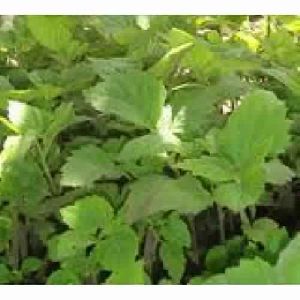
Patchouli Oil
Essential Oil of Patchouli is extracted by steam distillation of leaves of Patchouli, whose botanical name is Pogostemon Cablin or Pogostemon Patchouli. The basic components of Patchouli Essential Oil are Alpha Patchoulene, Beta Patchoulene, Alpha Guaiene, Alpha Bulnesene, Caryophyllene, Norpatchoulenol, Patchouli Alcohol, Seychellene and Pogostol. The insecticidal and insect repellant properties of this oil were known from a long time ago and were particularly used in protecting clothes from insects. Then later on, its other benefits were discovered. The health benefits of Patchouli Essential Oil can be attributed to its properties like anti depressant, anti phlogistic, anti septic, aphrodisiac, astringent, cicatrisant, cytophylactic, deodorant, diuretic, febrifuge, fungicide, insecticide, sedative and tonic. Its medicinal properties include… Anti Depressant: This oil works great on people suffering from depression. It is very much in use in aromatherapy. It uplifts mood, drives away disappointment and relaxes tension. Anti Phlogistic: It soothes inflammation, particularly those resulting from fever and gives relief. Anti Septic: Protects the wounds and ulcers from infections and from being septic. Aphrodisiac: Patchouli Oil is also good for treating sexual problems such as impotency, loss of libido and interest in sex, erectile problems, frigidity etc. and acts as an aphrodisiac. Astringent: It induces contractions in muscles, nerves and skin. This helps strengthening hold of gums on teeth, preventing shagging of skin, hair fall and loosening of muscles. This astringency of Patchouli Oil also helps stop haemorrhage by contracting the blood vessels. Cicatrisant: It helps heal cuts and wounds and also speed up the fading of their scars. This is equally effective in vanishing marks left by boils, acne, pox, measles etc. Cytophylactic: This property of the Essential Oil of Patchouli promotes growth by helping generation of new body cells. This helps in production of red blood cells too. It was seen mainly helpful in regeneration of new skin cells, thus keeping the skin healthy, young and vibrant. Deodorant: The strong sweet, spicy and musky aroma of this essential oil keeps away body odor. But it should be used in dilution as sometimes the aroma of Patchouli Oil might feel too strong to bear. Diuretic: It increases the tendency of urinating as well as the frequency of urination and quantity of urine. This helps loose weight, lower blood pressure, increase appetite, lower cholesterol and removal of toxins from the body. Febrifuge: Reduces body temperature in case of fever by fighting the infections causing the fever. Being an Anti Phlogistic, it gives relief from the inflammations caused by fever and this way too helps bringing down the fever, since fever can be reduced to some extent if the pain and inflammation associated with fever are taken care of. Fungicide: Patchouli Essential Oil has been found quite effective in inhibiting fungal growths and infections, thereby providing protection from some of the notorious infections like athlete’s foot. Insecticide: As said earlier, the insecticidal property of Patchouli Oil was recognized long ago. Despite smelling sweet, it is very effective in keeping insects away. It may be used in sprays, body lotions, fumigants, vaporizers, incense sticks or can be mixed with water to wash clothes and bed linen to drive away mosquitoes, ants, beg bugs, lice, fleas, flies and moths. Sedative: It calms down inflammations and sedates convulsions, coughs and epileptic attacks resulting from hype sensitivity or hyper reactivity of nerves. It can also stop eruption of allergies by sedating the hyper sensitivity of body towards certain elements. Tonic: This property of Patchouli Oil tones up the whole body. It makes right the metabolic functions like decomposition of food and absorption of nutrients by toning up the liver, stomach and intestines, helping you grow stronger and healthier; takes care of proper excretion; regulates the endocrinal secretions of hormones and enzymes and also tones up the nervous system, thus making you more alert and active, and finally, boosts the immune system, protecting you from infections. Other Benefits: Helps treat eczema, dermatitis, psoriasis and sores. Gives relief from constipation. Can be used as an antidote against insect bites temporarily. Few Words of Caution: The long lasting aroma of Patchouli Essential Oil, though sweet, may not be welcome for a few.
...moreBe first to Rate
Rate This